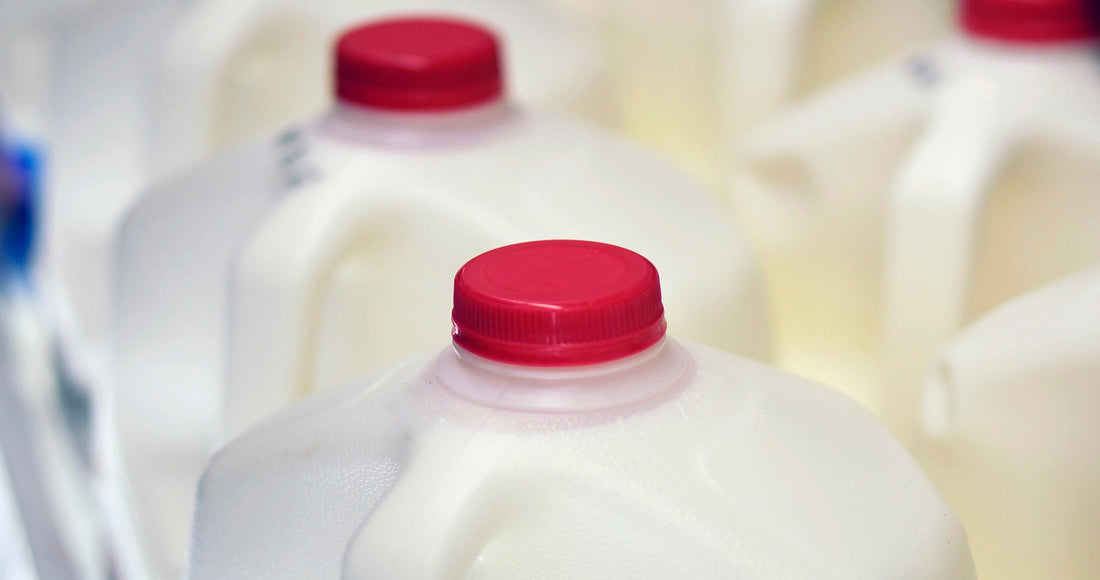
Does Milk Hydrate Better Than Water?
Share
For those who like to push their limits, proper hydration is an important tool in unlocking optimal performance, faster recovery, and lasting endurance. Whether you’re behind the wheel or on the court, hydrating ensures you remain alert and focused.
When you think hydration, water is likely the first choice to come to mind—but what about other sources like milk that also contain essential vitamins and electrolytes? With these added nutrients, does milk hydrate better than water?
The hydration experts at FluidLogic break down the benefits of milk vs. water to help you choose the best option for optimal hydration.
Understanding Hydration and Its Role in the Body
Staying hydrated is essential for maintaining nearly all of the body’s major systems and functions. Specifically, water is responsible for:
- Nutrient transport and absorption
- Temperature regulation
- Cellular function
- Digestion
For active individuals, water is essential for quick and efficient hydration, helping to sustain energy levels and prevent fatigue.
The Benefits of Water for Fast Hydration
Water is the foundation of optimal hydration, especially during intense physical exertion. It regulates body temperature, supports circulation, and helps transport nutrients to muscles, all of which are essential for sustaining energy and preventing fatigue.
During physical activity, the body loses fluids through sweat, making quick rehydration crucial. Water is rapidly absorbed into the bloodstream—often within just five minutes—allowing it to efficiently replenish lost fluids and support optimal performance.
Proper hydration before, during, and after activity not only fuels performance but also accelerates recovery by reducing muscle cramps and aiding in waste removal.
Milk’s Hydration Properties: When It Can Help, But When It Doesn’t
As a liquid, milk does have hydrating properties, but it’s not nearly as effective as water.
Milk has a slower absorption rate than water due to its fat, protein, vitamin, and mineral content—ingredients that support health and recovery while simultaneously delaying hydration.
When it comes to quick and efficient fluid replenishment, water is the optimal choice.
Nutrients in Milk That Support Recovery
Milk can help support fluid balance, though not in the same way as traditional hydration. Instead, it provides key nutrients that promote post-fitness recovery, including:
- Electrolytes (calcium, sodium, and potassium) to replenish what’s lost through sweat
- Protein to aid muscle repair
- Carbohydrates to provide the energy needed for sustained performance
This nutritional combination makes milk better suited for post-exercise recovery than hydration.
Comparing Water and Milk for Hydration
In recent years, several scientific studies have compared the hydration properties of water vs. milk. While this research does suggest that milk hydrates better than water, it isn’t entirely true, and it comes with a few caveats.
Many of these studies are small, industry-funded, and focus on short-term fluid retention rather than overall hydration benefits.
For most people, simply drinking water when thirsty remains the best approach to staying hydrated.
The Beverage Hydration Index: Water vs. Milk
Don’t just take our word for it—the numbers speak for themselves. The Beverage Hydration Index (BHI) compares the relative hydration properties of different beverages to water.
According to the BHI, water consistently ranks higher than milk for overall hydration effectiveness, even when taking the effects of electrolytes, carbohydrates, and proteins into account.
While milk may pack a nutritional punch, it can’t achieve water's superior hydration properties.
Why Water is the Optimal Choice for Active Individuals
For people who require rapid and consistent hydration, water is the best solution to staying hydrated before, during, and after endurance exercise. That’s because it:
- Minimizes fatigue and cramps
- Prevents dehydration
- Promotes endurance and stamina
- Sharpens focus
When Milk May Be Useful: Post-Exercise Recovery
Just because milk can’t hydrate the body as quickly as water doesn’t mean it has no place in your recovery routine. Milk’s unique protein, electrolyte, and nutritional content can:
- Promote muscle repair
- Decrease muscle damage
- Improve strength
- Soothe muscle soreness
Again, even though milk can help with recovery and repair, it shouldn’t replace water as your primary hydration source.
Optimizing Hydration with FluidLogic Systems
While milk does contain essential nutrients your body needs for recovery, it’s not the best choice for hydration.
So, instead of gulping down a glass of milk after you go hard, stay properly hydrated with FluidLogic’s cutting-edge hydration systems.
Engineered for professionals in motorsports, outdoor adventure, medical fields, and the military, our advanced technology delivers hydration when you need it most—ensuring efficient water absorption even in the heat of intense action.
Through the power of intelligent hydration, FluidLogic helps customize hydration solutions to each individual, optimizing water intake to prevent dehydration.
The result? Sustained hydration for enhanced performance.
Water Remains the Best Hydration Choice
Despite milk’s nutritional benefits, water is undoubtedly the most effective choice for fast and efficient hydration, especially during physical activity.
Optimize your hydration strategies with FluidLogic hydration and vehicle systems, combining precise water dosing technology with on-demand hydration tailored to your needs, no matter the conditions.
Peak performance requires proper hydration—and that starts with FluidLogic.
Sources:
- Mayo Clinic. Water: Essential for your body. https://www.mayoclinichealthsystem.org/hometown-health/speaking-of-health/water-essential-to-your-body-video.
- Healthline. How Long Does It Take for Water to Pass Through Your Body? https://www.healthline.com/health/digestive-health/how-long-does-it-take-for-water-to-pass-through-your-body.
- Healthline. Should You Drink Milk If You're Dehydrated? https://www.healthline.com/nutrition/milk-for-dehydration.
- Harvard Health Publishing. When replenishing fluids, does milk beat water? https://www.health.harvard.edu/blog/when-replenishing-fluids-does-milk-beat-water-202211142849.
- National Library of Medicine. The Beverage Hydration Index: Influence of Electrolytes, Carbohydrate and Protein. https://pmc.ncbi.nlm.nih.gov/articles/PMC8465972/.
